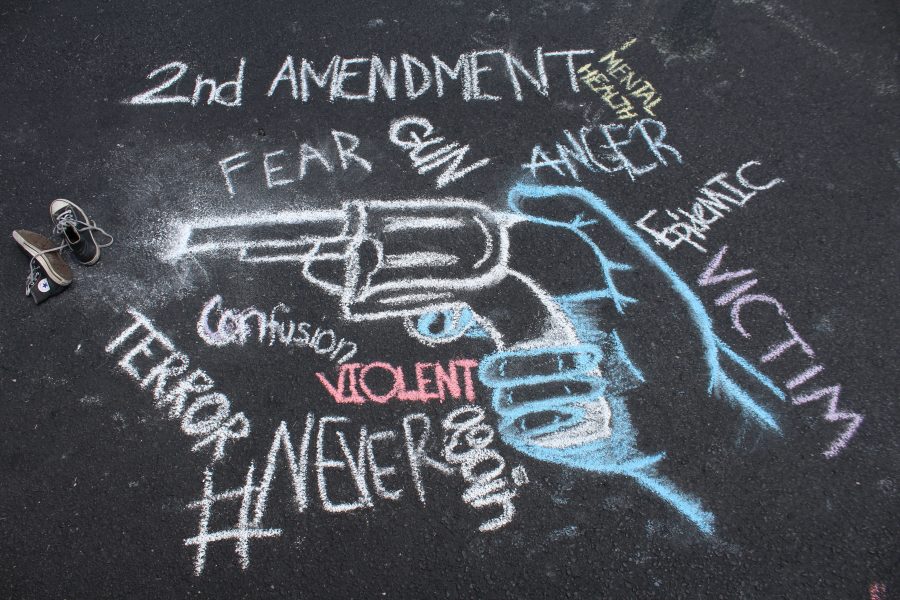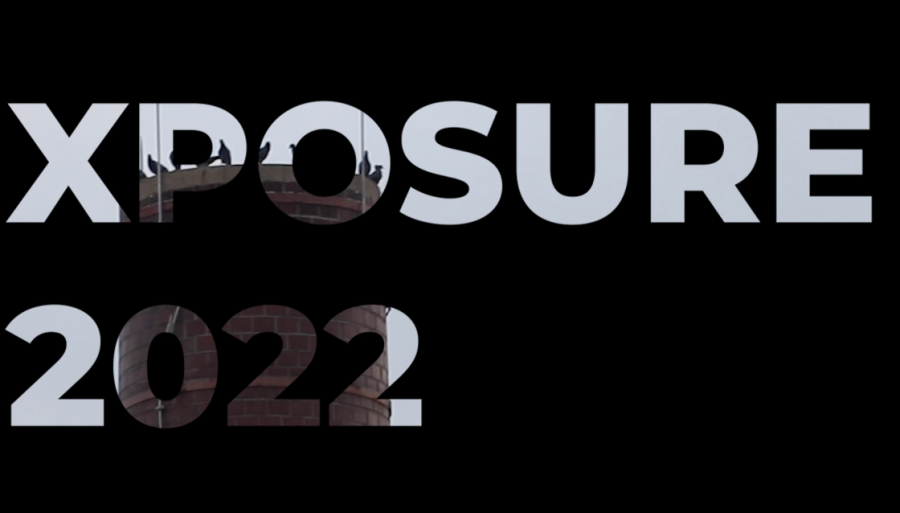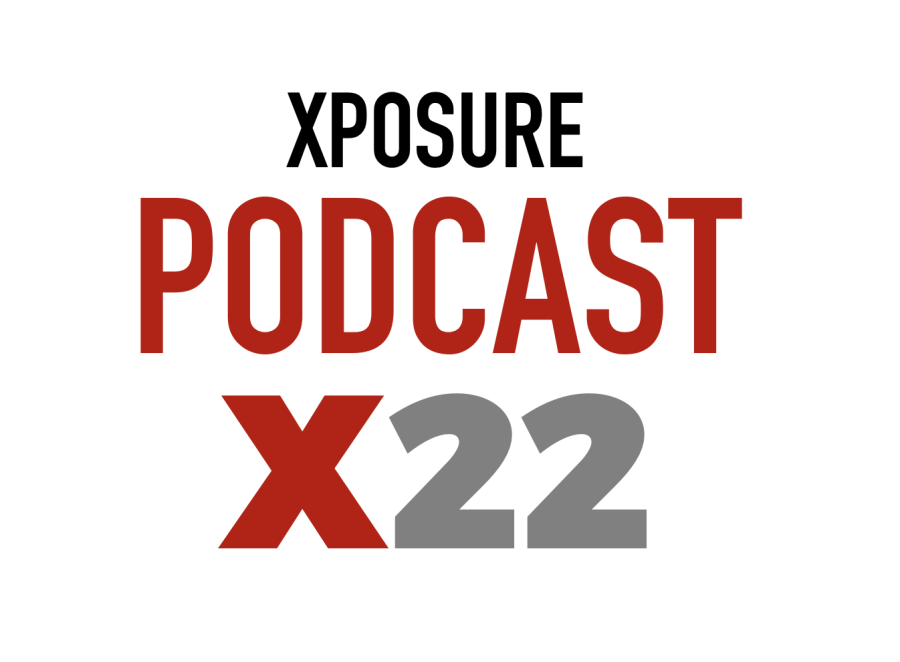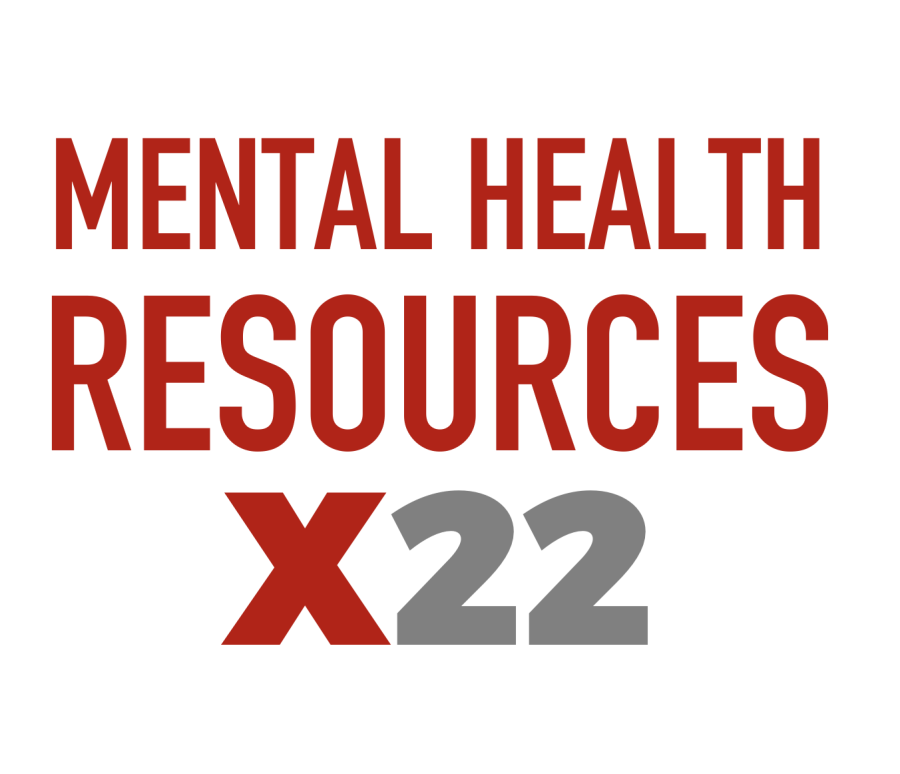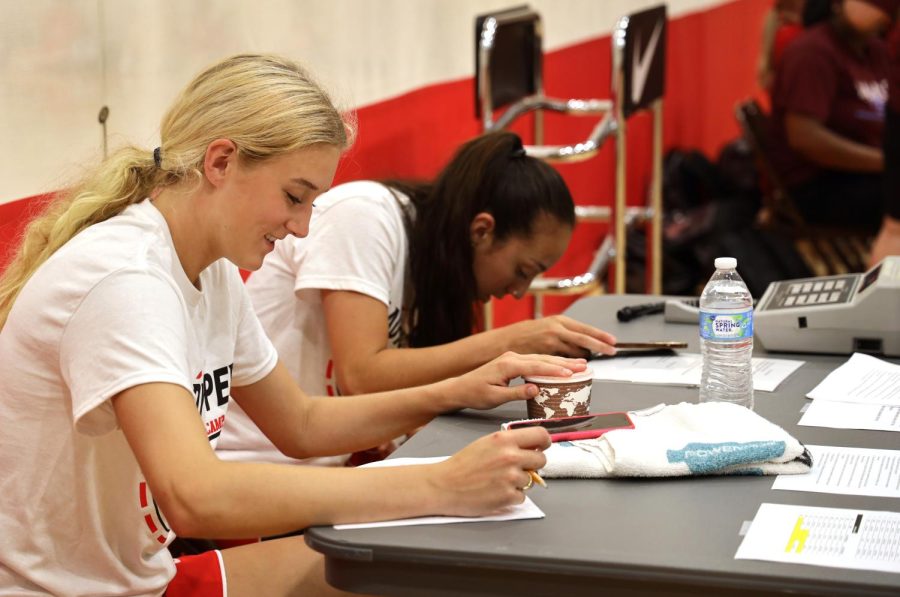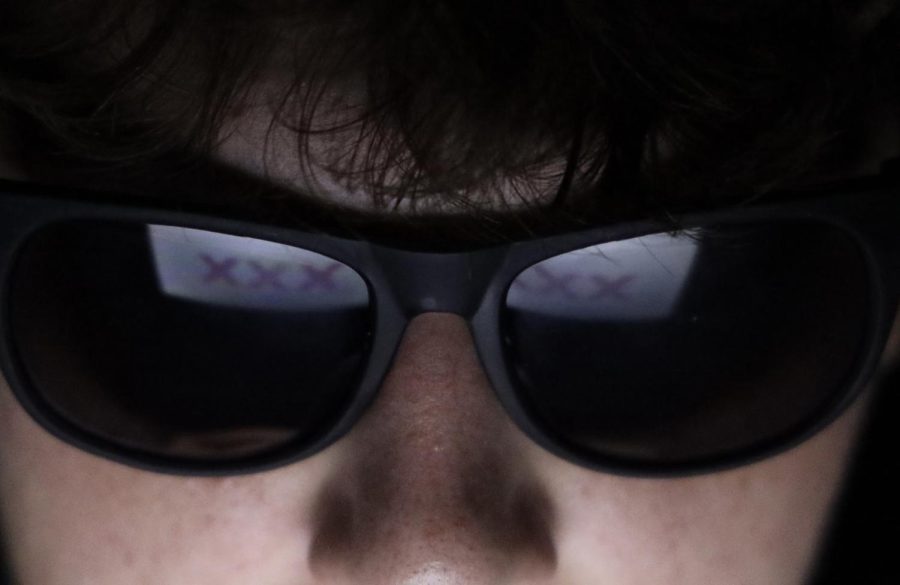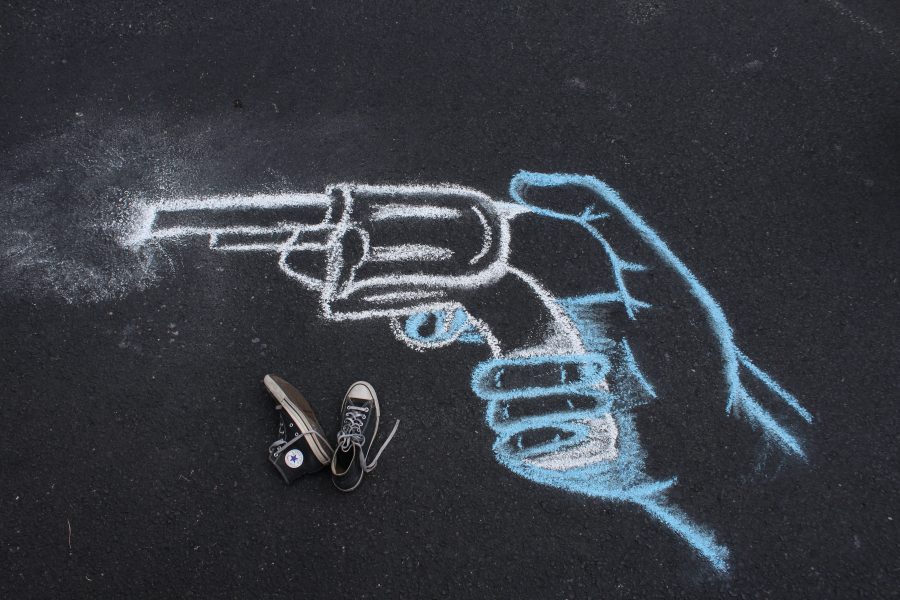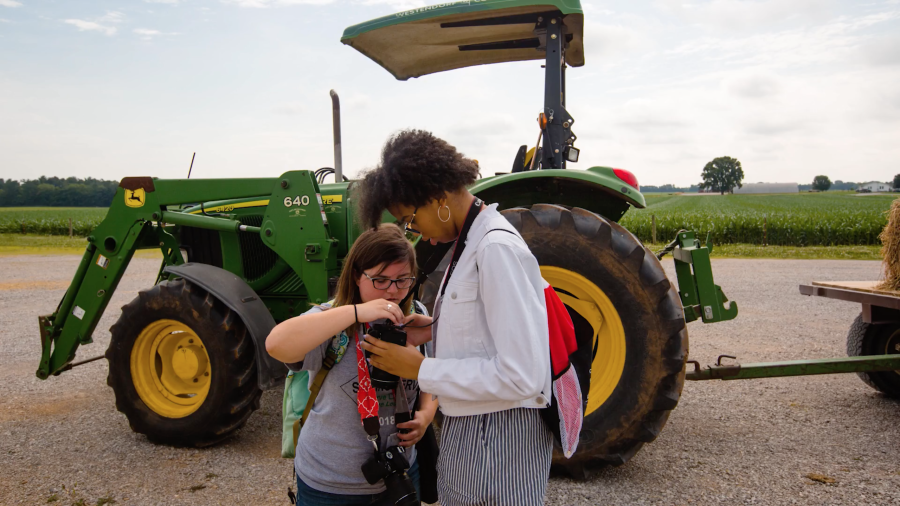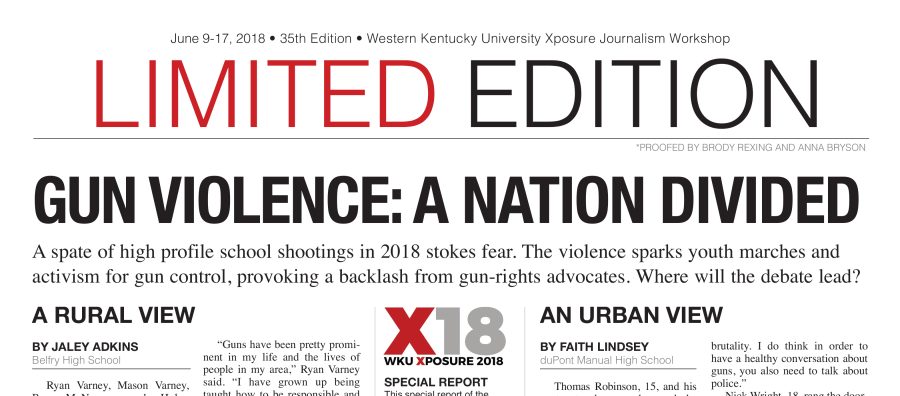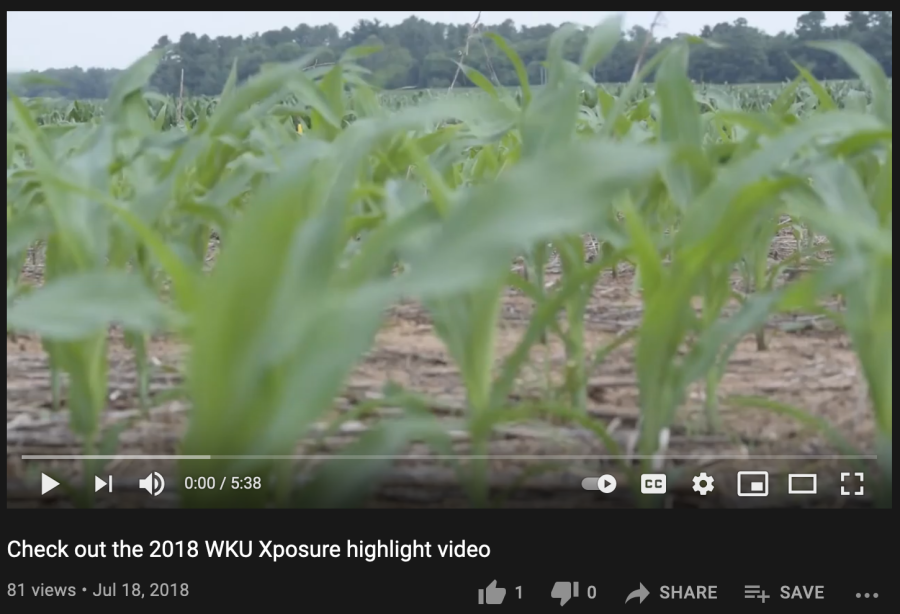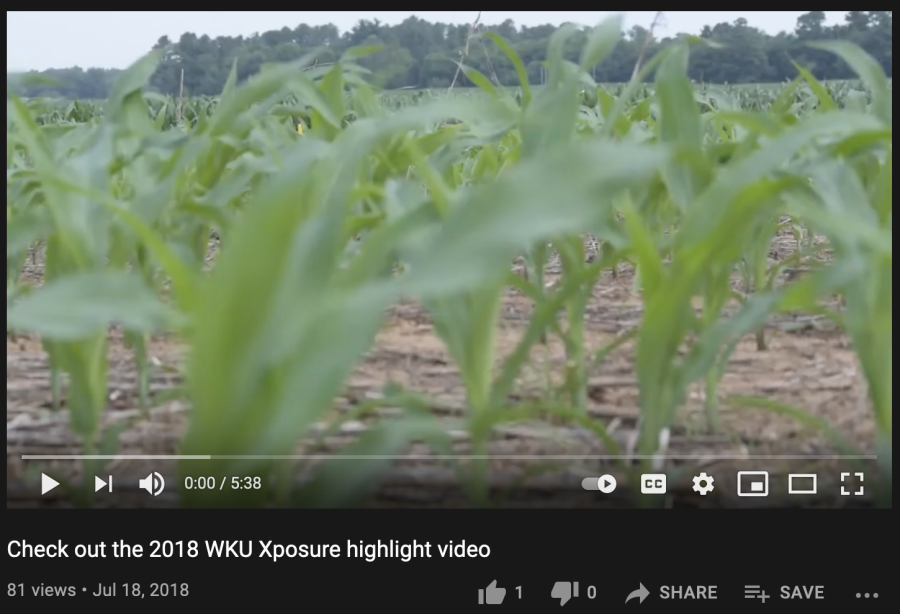A spate of high profile school shootings in 2018 stokes fear. The violence sparks youth marches and
activism for gun control, provoking a backlash from gun-rights advocates. Where will the debate lead?
BY FAITH LINDSEY
duPont Manual High School
Thomas Robinson, 15, and his aunt entered a gun shop and she chose a small pistol, signed a paper and walked out with a new gun.
“That means anyone can just walk in and buy a gun,” Robinson said.
In her home, Jennifer Bencomo-Suarez, 20, stumbled upon a Facebook post for an event hosted at her school, University of Louisville, supporting open carry on campus.
“I just think it’s ridiculous, but it is also a concern in colleges, and in high schools, and in schools in general, because often they correlate gun violence to police brutality. I do think in order to have a healthy conversation about guns, you also need to talk about police.”
Nick Wright, 18, rang the doorbell at Ballard High School and, without any identification, was admitted into the school immediately.
“I was thinking to myself, ‘When I press this buzzer they don’t even look at the camera to see who is outside,’” Wright said. “I’m like, dude, I can have a rifle in my hand and then come and blow up the entire office.”
These students live in Louisville, where instances like these aren’t extraordinary. Their experiences vary widely, but the issue of gun control connects them.
Louisville, Kentucky’s biggest city, is one of only two counties out of 120 that voted Democrat during the 2016 U.S. presidential race.
The views of urban students often vastly different from those who live in rural areas.
“Urban residents tend to be more liberal-leaning and rural residents tend to be more conservative-leaning,” Robinson, a sophomore at duPont Manual High School, said.
In light of the increase in school shootings and last year’s highest homicide rates in decades in Louisville, the conversation on gun control and the power of the Second Amendment has created a gray area for many.
“I was very pro-gun and everything, but after these recent shootings I had to re-analyze the way I think about guns,” Robinson said.
He values the Second Amendment and still says he’s a supporter of it, but admits there is a need to enforce some laws regulating whose hands guns end up in.
Just like Bencomo-Suarez and Wright, Robinson believes strict background checks and intensive training would be a solution to the epidemic.
Robinson also believes psychological tests proving a person’s mental capacity to own a gun are needed. “That way safer people are getting guns,” he said.
Some people, like Wright, believe that while these solutions sound plausible, it would be difficult to make sufficient progress.
“The fact that this many people can die and we just let the same crap happen – we get mad and we get sad about it, then we march and we cry, then we get on Twitter and then the same stuff happens,” he said. “It’s like an endless cycle.”
The debate on gun control transcends race, culture and socio-economic status.
Bencomo-Suarez, a Cuban American female, says she steers away from guns because of her upbringing in a Cuban household. When Fidel Castro was Cuba’s leader, he mandated strict gun laws.
“My parents, because they are Cuban, they come from the background that in Cuba you couldn’t have guns as a civilian. That’s something that they’ve never really grown out of. That’s not something that they believe in having, so neither my brother and I don’t really want to own a gun either.
Meanwhile, Wright, an African-American male, was raised in a home where his father kept a gun inside the home.
“I support the Second Amendment. I understand that some people live in neighborhoods in which having a gun is productive where you can actually help yourself or keep yourself from getting hurt,” Wright said.
Even though he supports it, Wright believes the amendment is due for some changes. “Not completely doing away with the Second Amendment but tailoring it to our current situation in America,” he said.
One of Wright’s proposed solutions is outlawing military-style weapons.
“I would say that the people that like really support it are always like, ‘Well, I should be able to have any type of gun I want.’ I don’t believe that,” Wright said. “Like you don’t need military-grade weapons.”
He thinks certain groups of people, however, fight to keep guns that aren’t needed.
“The issue is white people love their guns. They love them. They don’t want to let them go. It’s like a part of their society,” Wright said.
Similar to Wright, Robinson also grew up around guns.
“My dad hunts. He owns a lot of guns. His dad hunted. He owns a lot of guns and that’s just how I was brought up and that’s how he was brought up,” he said.
“Guns are definitely not important but they’ve just always been in my life, and so I think that there’s often misinterpretation of what guns are.”

